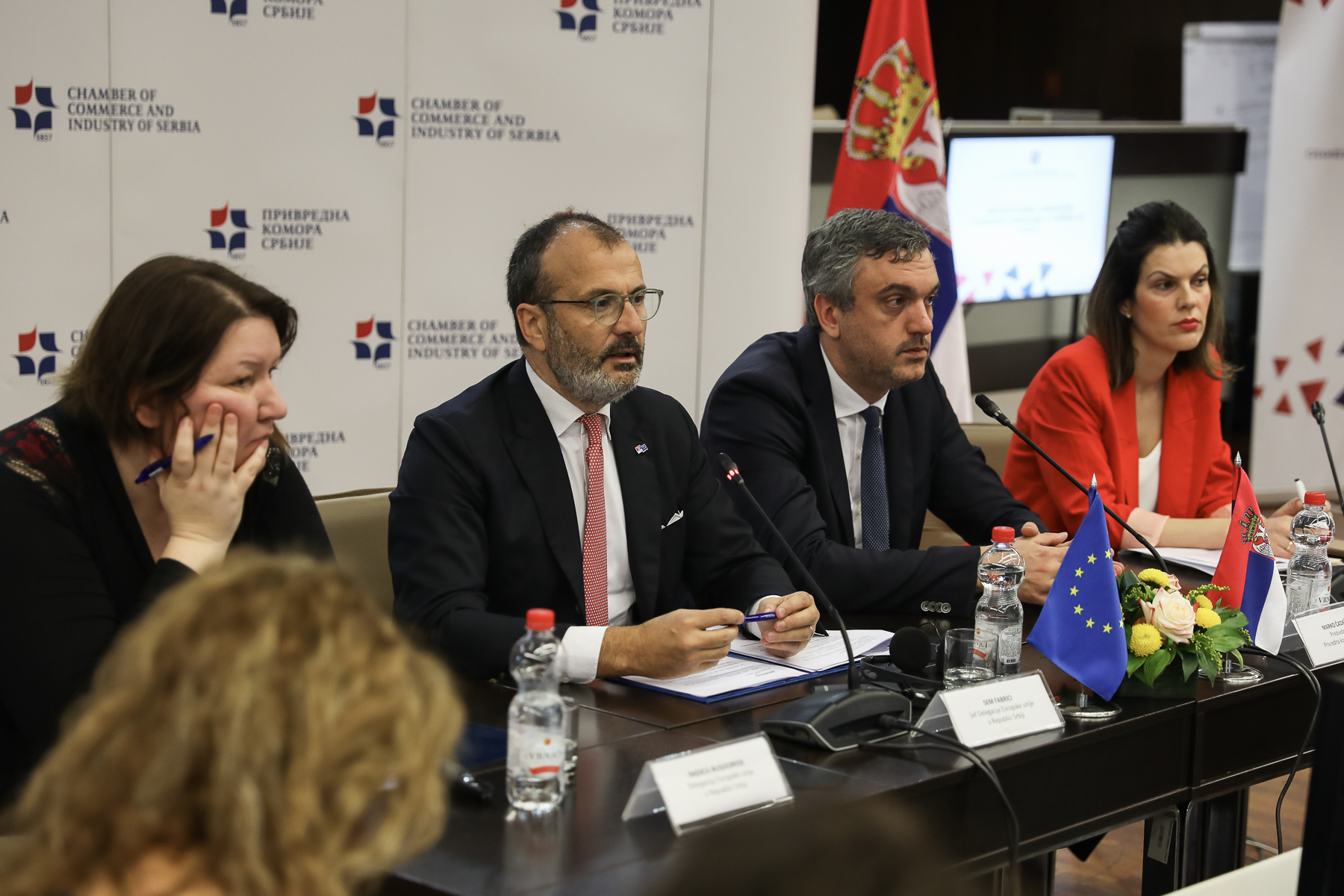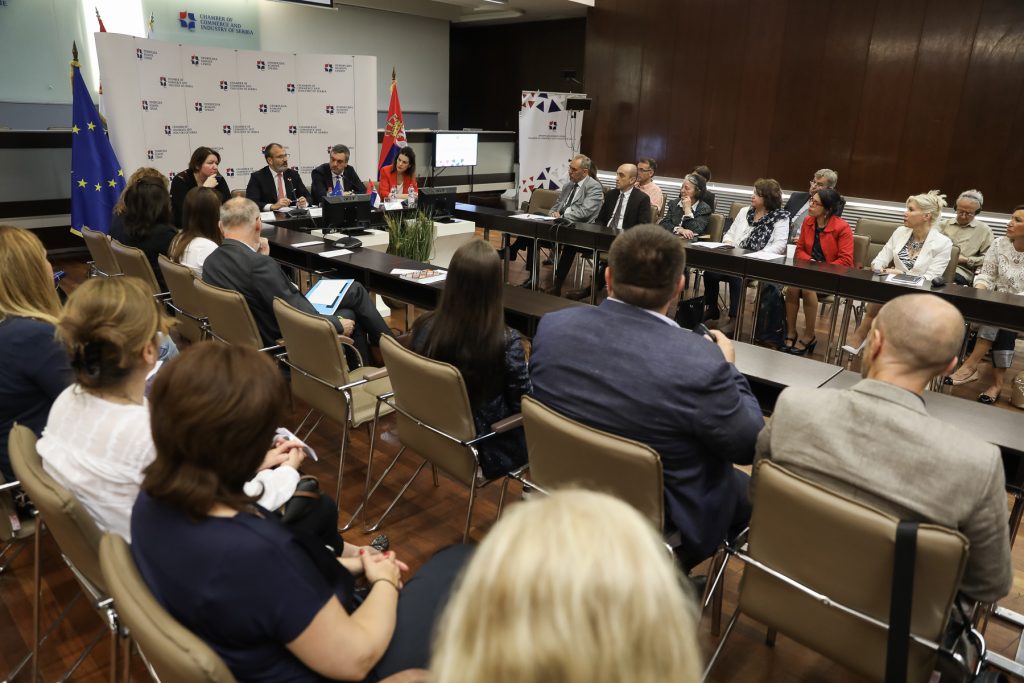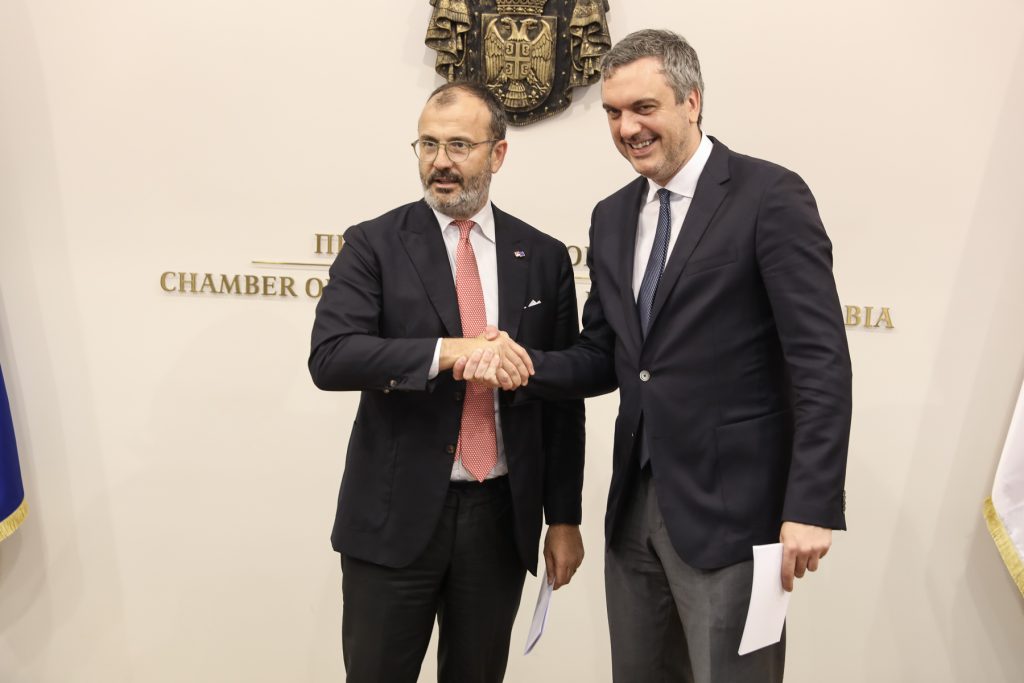The Annual Report on Serbia for 2019 was presented to the business community in the Serbian Chamber of Commerce (PKS). The Head of the Delegation of the European Union to Serbia, Ambassador Sem Fabrizi, says that the state is committed to long-term economic reforms.
Accession is a process that requires time, and the report represents a photographic picture of what has been done so far, the Ambassador explains. He adds that, as far as the economy is concerned, the report highlights two key conclusions.
“One of these conclusions is that Serbia’s basic macroeconomic indicators are good. This implies deficit, debt, inflation and budget surplus”, says Ambassador Fabrizi. He adds that these developments are creating the conditions for GDP to grow by three to four percent.
At the same time, the report concludes that Serbia must continue with reforms if it wants to fullfil its potential.
“Serbia should have a liberal economy in a democratic society, and the progress needs to be sped up in the field of the rule of law, in which Serbia has not made enough progress,” Fabrizi said, adding that the EU will continue to help Serbia move faster in all areas.
The business community of Serbia is integrated into the EU, with 67 percent of total exports to the market, while 75 percent of foreign direct investments in Serbia are from the EU, Fabrizi concludes.
PKS President Marko Čadež claims that Serbia has made significant progress in improving the business environment in the past year, which is recognized by EU investors.
“Large EU companies have recognized Serbia as a place where they can feel safe, where they can find qualified workers and where can they export to the world,” Čadež said.
As an indicator of such trends, he states that since March of last year, 40 companies from the EU started operating in Serbia, and that they invested more than 400 million euros and employed 19 thousand people.
See more:






